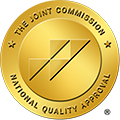Addiction recovery extends far beyond the initial detoxification phase. It’s a lifelong commitment requiring awareness and a proactive approach to avoid returning to substance abuse. Here’s why a robust relapse prevention plan is especially crucial if you choose outpatient detox.
Understanding Relapse Triggers
Relapse is not a single event but a process, often precipitated by various circumstances that can jeopardize your recovery.
1. Emotional Triggers
Stress, anxiety, depression, and other intense emotions might lead you to seek relief in old, destructive habits. The inability to effectively manage these feelings is often a primary driver for relapse.
2. Environmental Triggers
Places, people, or situations you associate with drinking or using may reignite cravings. Social settings that put you in proximity to others who use these substances can also significantly challenge your sobriety goals.
3. Exposure Triggers
Direct exposure to addictive substances can be a powerful relapse trigger. For example, the sight or smell of alcohol and drugs can reignite memories of active addiction and the feelings associated with it, potentially causing you to glamorize substance abuse.
What Is a Relapse Prevention Plan?
A relapse prevention plan is a comprehensive, evolving tool that outlines strategies to avoid or cope with these triggers. At Acworth Outpatient Detox, your case manager will work closely with you to develop a recovery roadmap based on your unique needs.
1. Structured Support
Outpatient detox lets you stay home instead of moving into an inpatient rehab facility. While this benefits many people by allowing them to balance your treatment with work and family responsibilities, staying in a familiar environment can expose you to daily stressors and triggers. A relapse prevention plan provides a structured approach to handle these challenges without returning to substance use.
2. Accountability
Regularly review your relapse prevention plan with your case manager to keep you accountable to sticking with your strategies. You can adjust the plan to evolve with your changing needs.
3. Empowerment Through Education
Part of relapse prevention planning involves learning about the disease of addiction – including that relapse is part of the recovery process for many people. If you experience a setback, it doesn’t mean you’ve failed – instead, view it as a chance to renew your motivation and get back on track.
4. Coping Strategies
Make sure your plan includes specific coping strategies tailored to your unique triggers. These might include exercising, meditating, contacting your sponsor or therapist, or attending a 12-step meeting when triggers arise or you encounter a high-risk scenario.
5. Lifestyle Modifications
Relapse prevention planning also involves making broader lifestyle changes that support sobriety. These may include working out regularly, volunteering in your community, eating a nutritious diet, and finding fulfilling new hobbies that do not revolve around substance use.
Start Your Sobriety Now
A relapse prevention plan gives you essential structure, inspiration, and accountability in outpatient detox. It provides practical tactics for addressing the complexities of recovery in the real world, equipping you with the tools you need to maintain sobriety in the face of everyday challenges.
At Acworth Outpatient Detox, we emphasize the creation and refinement of relapse prevention plans as a cornerstone of successful recovery, giving every client the best possible chance to thrive in long-term sobriety. Contact our admissions office today to learn more about our approach and choose whether it is right for you.






